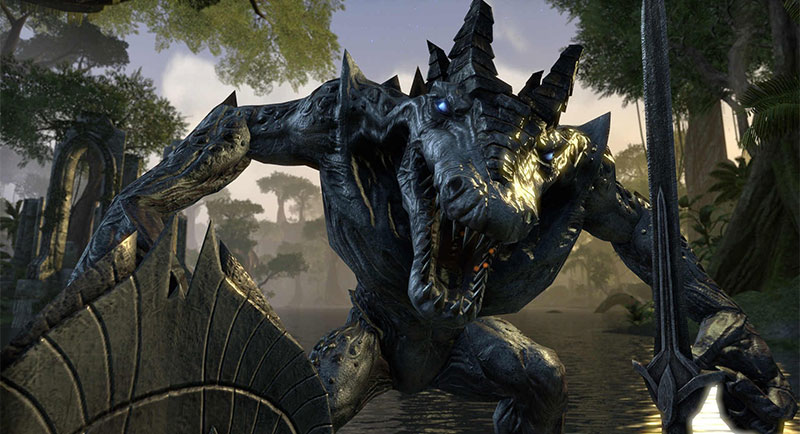How Did The Elder Scrolls Online Rise To Success After A Disappointing Launch?
by Mike Jones
Even though online games should be regarded like ongoing services, and initial impressions near launch shouldn't be taken too seriously if some time has passed after the original release. People still find it hard to grasp the concept of ever-changing games, because this is basically the only medium which, unlike movies, books and music, can change and adapt after the first release. Such is also the case of Elder Scrolls Online, which launched in 2014 as a subscription-based MMORPG, meeting harsh criticisms from players and reviewers alike.
Elder Scrolls' Disappointing Launch

Coming from Skyrim which was released in 2011 as the fifth main game in the Elder Scrolls series, many players expected ESO to be an online Skyrim where they can play the same way, only with some other people around. Those other people were too many, so their immersion was "ruined" because the game pushed the fact that the player character is the Chosen One… but everyone was doing exactly the same quests as them! Quests were also phased heavily; this technology was used to change the world around players, to make the world react to their choices during many quests - but this also brought the issue of constant separation of group members who weren't on exactly the same step of the same quest.
3 Alliances
There are 3 Alliances - so-called factions in the game, so in theory three completely different sets of areas and accompanying quests. The initial max level was 50, after which Veteran Ranks were introduced as a long and arduous, linear grind in specified areas of the other two Alliance zones the player's character wasn't a part of.
These gameplay issues, huge amounts of bots roaming around and the Player vs Player mode suffering from crashes and lags, all in a subscription-based game made many players quit after the initial few months.
Drop the Mandatory Subscription Fees
Since buy-to-play games such as Guild Wars 2 enjoy immense success, Zenimax also decided to drop the mandatory subscription fees of Elder Scrolls Online, making the game more accessible. The game was rebranded as "Elder Scrolls Online: Tamriel Unlimited", and this edition is the one which made it to the PS4 and Xbox One consoles, where it is one of the few massive multiplayer games available without a subscription fee for the game.
Instead of continuing the level cap increases like most themepark MMOs try to keep players interested, Veteran Ranks were reworked into a Champion Point system, which is much faster to earn, is bound to the player's account instead of being character-based. The "One Tamriel" update in Autumn of 2016 unified the entire game with the exception of PvP and some parts of the high-end group content - players can meet up and play together anytime, anywhere regardless of alliances or character levels, as everything now scales to max level. The next update slated to arrive in February, Homestead, will add the long-awaited player housing to the game, which will be similar to Skyrim's Hearthfire add-on.
Due to these changes, the game enjoys an immense popularity among PvE players - it is accessible, easy to jump in and out, and can be played very casually. It is not without issues - there have been some controversies regarding the real-money shop and some items contained within - but still, it is amazing to see how long ESO has come since the disappointing original launch. While it is still nowhere near what players envision a co-op Skyrim, it is getting really good as a stand-alone Elder Scrolls title.

About Mike Jones
As a child of the 80's, my fondest gaming memories are playing Pitfall, Frogger, Kaboom! and Chopper Command on our old Atari 8600. These days I've been rocking the Nintendo Classic and learning some new card and board games with the family."
Thoughts on "How Did The Elder Scrolls Online Rise To Success After A Disappointing Launch?"
 |
 |
 |
 |